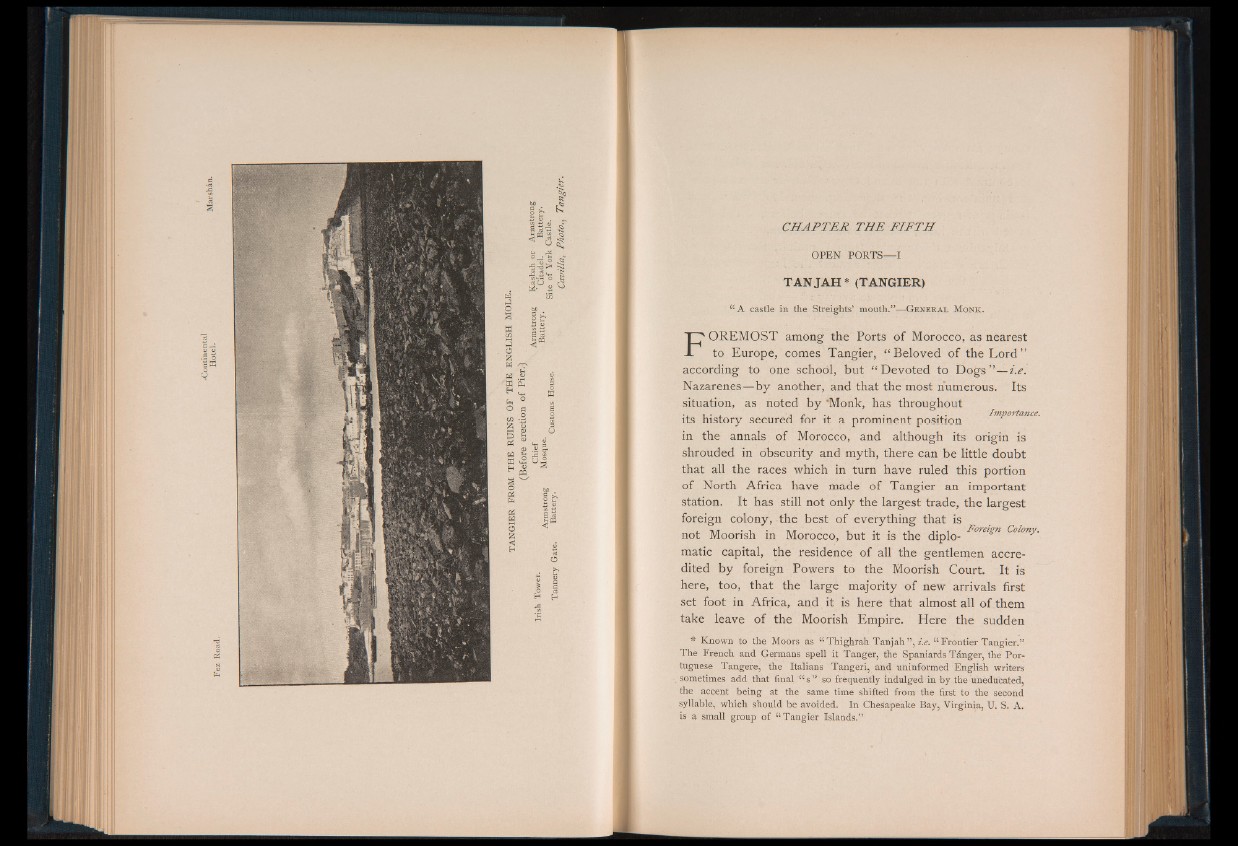
w otí bO s o
tu ■§ •
m S '
tíO
& tí fjl
tí <u
’tHU£«-M tí O
O PJ
C/3 g
í3
£o .<au; DU<-<u ttuí <u Vi Mu
H <u
£1 tí tí
ttí &
«5
3tí 2o
CH APTER THE F IF T H
OPEN PORTS— I
TANJAH* (TANGIER)
“ A castle in the Streights’ mouth.”— G e n e r a l M o n k .
FOREMOST among the Ports o f Morocco, as nearest
to Europe, comes Tangier, ‘‘ Beloved of the L o rd ”
according to one school, but “ Devoted to D o g s ”— i.e.
Nazarenes— by another, and that the most numerous. Its
situation, as noted by 'Monk, has throughout
Imvovtctnce its history secured for it a prominent position
in the annals of Morocco, and although its origin is
shrouded in obscurity and myth, there can be little doubt
that all the races which in turn have ruled this portion
of North Africa have made of Tangier an important
station. It has still not only the largest trade, the largest
foreign colony, the best o f everything that is
not Moorish in Morocco, but it is the diplo- poreisn Colony-
matic capital, the residence of all the gentlemen accredited
by foreign Powers to the Moorish Court. It is
here, too, that the large majority o f new arrivals first
set foot in Africa, and it is here that almost all of them
take leave of the Moorish Empire. Here the sudden
* Known to the Moors as “ Thighrah Tanjah” , i.e. “ Frontier Tangier.”
The French and Germans spell it Tánger, the Spaniards Tánger, the Portuguese
Tangere, the Italians Tangeri, and uninformed English writers
sometimes add that final “ s ” so frequently Indulged in by the uneducated,
the accent being at the same time shifted from the first to the second
syllable, which should be avoided. In Chesapeake Bay, Virginia, U. S. A.
is a small group of “ Tangier Islands.”